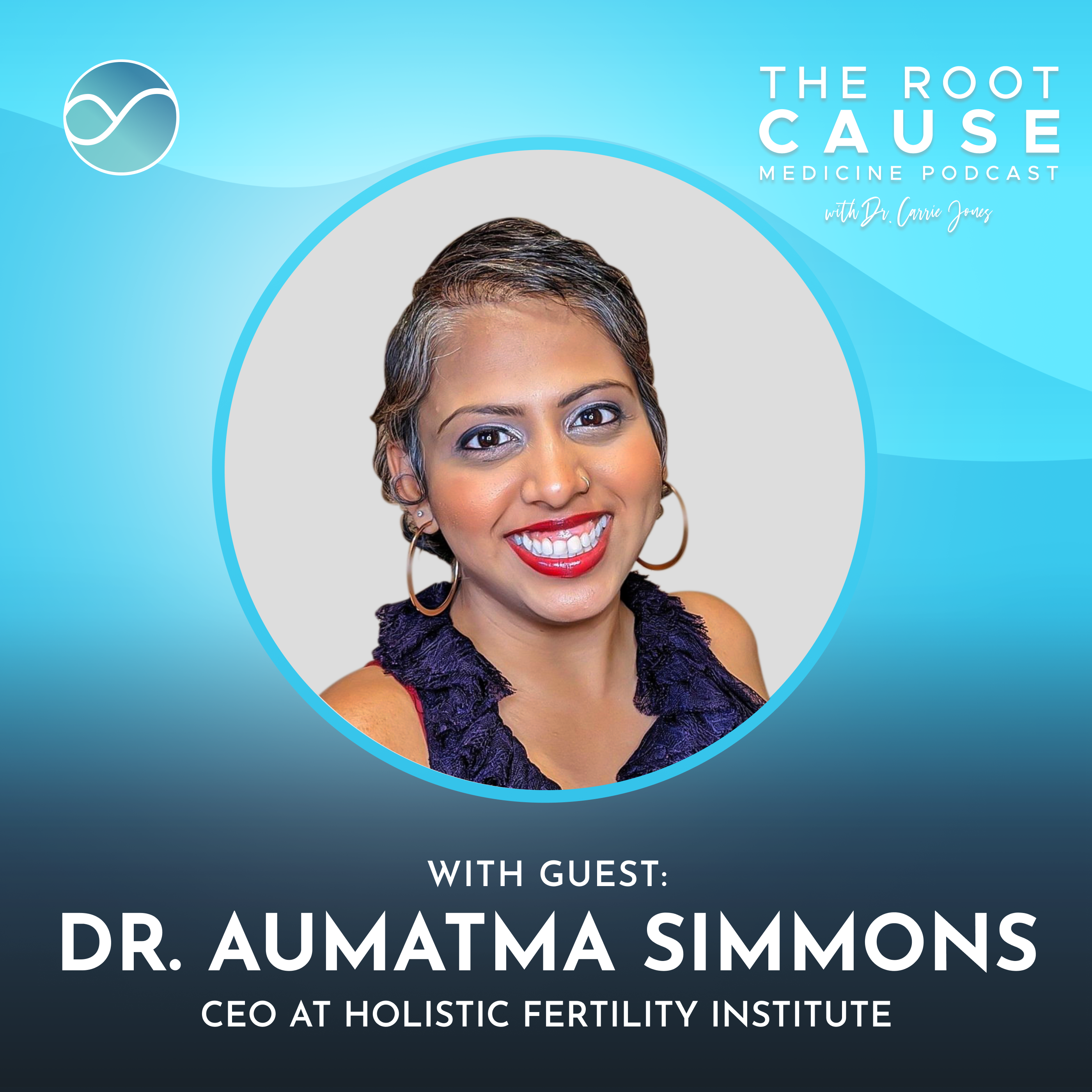What Should You Know About Fertility to Get Pregnant with Dr. Aumatma Simmons

The Root Cause Medicine Podcast is created by Rupa Health, the best way to order, track & manage results from 30+ lab companies in one place for free.\n\nThe Root Cause Medicine Podcast is a weekly one-on-one conversation with renowned medical experts, specialists, and pioneers who are influencing the way we look at our health and wellbeing. This week we\u2019re joined by Dr. Aumatma Simmons, CEO of Holistic Fertility Institute.\n\nIn this episode of The Root Cause Medicine Podcast, Dr. Aumatma Simmons shares her method of helping women who struggle with fertility, miscarriage, and staying healthy during pregnancy.\n\nDr. Aumatma Simmons, or "Dr. Aum" as her patients refer to her, is board-certified in naturopathic endocrinology. She has been in practice for fifteen years, ten of which have been hyper-focused on fertility. \n\nAs the Chief Executive Officer of Holistic Fertility Institute, Dr. Aum works with couples who want to start a family through her four-step restorative fertility model. She is a sought speaker, trainer, and best-selling author of two books, Fertility Secrets: What Your Doctor Didn't Tell You About Baby-Making and (In)Fertility: Struggles, Secrets, & Successes.\n\nTo learn more about fertility and pregnancy, check out the key takeaways of this episode or the transcript below.\n\nAlso, check out Dr. Aumatma Simmons\u2019 recommended lab testing: Cheat Sheet Test, Diva's Detox Guide. \n\nThese labs can both be ordered through Rupa Health - https://www.rupahealth.com/reference-guide\n\nKey Takeaways:\n\nStart with testing\nWhen it comes to fertility and pregnancy, the first thing to focus on is testing. Start testing things like the follicle-stimulating hormone, the luteinizing hormone, the anti-mullerian hormone, and estradiol, ideally on days two, three, or four of your cycle. Regarding lab testing, there is a big diversion between what's considered normal and optimal. So when looking at your results, if you're outside of that optimal level, you have a good starting point of what to focus on.\n\nLifestyle and fertility \nIn a heterosexual couple, a lot of pressure and fertility problems are put on the woman and her age. However, fertility is not just an age factor but also a lifestyle one. If you are not sleeping well, stressing yourself out, living a toxic lifestyle, drinking alcohol, or smoking cigarettes, your age will play a role in your fertility. But that is relevant for both men and women. So lifestyle has a great impact on your reproduction.\n\nOvulation 101\nOvulation is the process of the ovaries producing anywhere from one to fifteen follicles in any natural cycle. After the development of all these follicles, the body detects the one with the highest quality, which will be released into the fallopian tube. This follicle travels down the fallopian tube, where the sperm should fertilize the egg. But the egg still has a protective layer called the zona pellucida. So when the sperm gets to the egg, the one with the right motility, movement, and morphology will break through that zona pellucida.\n\nThe problem comes when the sperm doesn't have great quality and cannot do its job. And similarly, if that egg doesn't have all the right features, it may not get fertilized. Or it will get fertilized and then turn into an embryo that maybe doesn't implant, which would be called a chemical pregnancy. Or it implants and ends in a loss, hence a miscarriage.